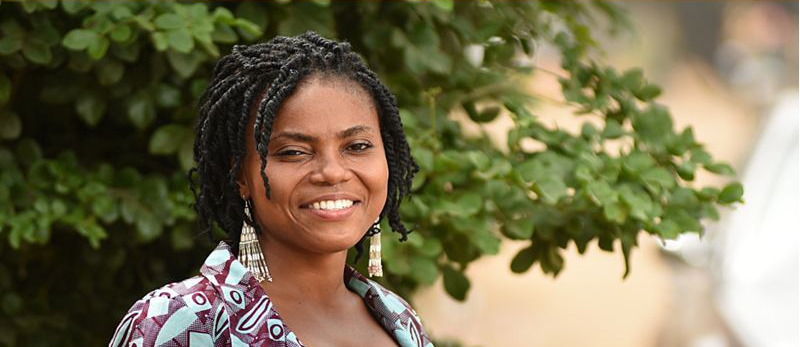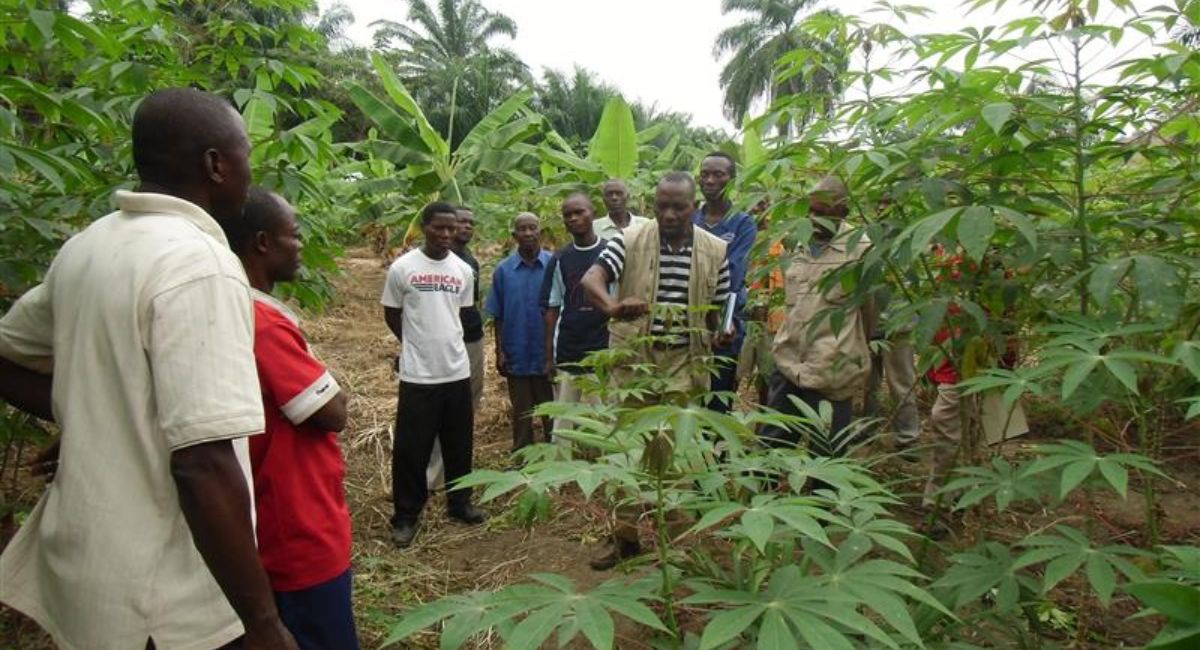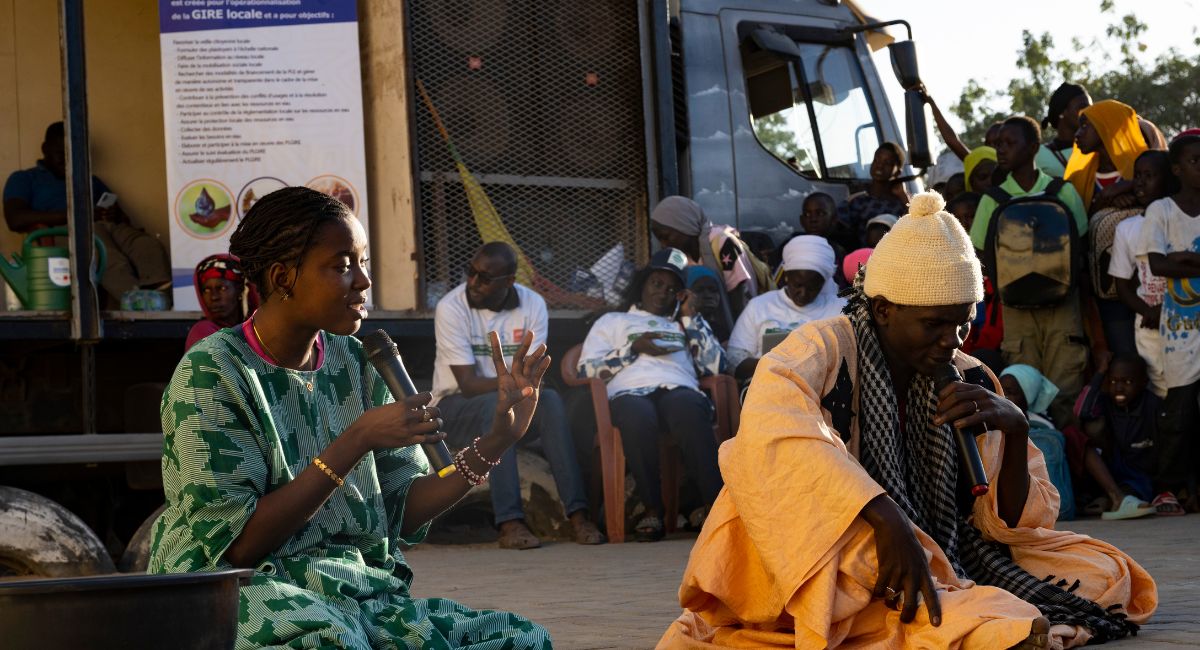Rolande Aziaka is a Togolese environmental activist. In 2017, she created the first WebTV channel dedicated to the Sustainable Development Objectives in Togo. She subsequently represented African civil society at the United Nations decade for deserts and the fight against desertification for two years, before becoming co-facilitator of the Large NGOs’ group with the United Nations Environment Programme (UNEP). She participated in validating GRET’s climate strategy as a major witness on 7 April last.
Where did your vocation for the environment come from?
When I was a teenager, there was a community radio channel in my locality. Every week, listeners could call into the channel with an idea, to suggest a debate, or comment on current events. Not many listeners spoke about the environment, whereas for me, the forest and biodiversity were essential. That made me want to call in to highlight this subject in discussions. I started calling in and listened regularly to the radio show, so much so that I was invited to feature on it. That’s how it all began. My vocation for the environment is a deep, almost innate, conviction, but it is also a reaction to a lack of awareness. And people trusted me, from the outset
As a member and representative of civil society relating to these issues, in your opinion what roles can be played by civil society organisations (CSOs)?
I often participate in COPs and international negotiations. I interact with diplomats, members of the private sector, scientists… The main distinction between these stakeholders and CSOs is the field. CSOs have local anchorage, a capacity for action, and they are accountable. They must be able to provide feedback on priorities in the field, expectations, actions that work, to enrich discussions on development trajectories, consolidate scientific data, and guide the international agenda for a fairer, more sustainable world. This is an essential connection.
CSOs also have the capacity to conduct actions in the field that are complementary to those of other stakeholders, in particular local elected representatives. So they must also have these debates in situ: how to construct local transition that responds to the aspirations of inhabitants, while thinking about the future, taking account of worldwide extinction of biodiversity, climate change, pollution, etc.?
Lastly, CSOs have a duty to be exemplary. This aspect is highlighted in GRET’s climate strategy, which impressed me. As a WebTV leader, I asked myself how it is possible to reconcile digital citizen participation and sobriety.
You participated in the validation of GRET’s climate strategy, what feedback can you give us on this?
It was inspiring. I could see there had been a lot of debates beforehand to define the role that GRET can play. Because the link is complex, it requires several levers for action such as projects and activities. It also needs to be adapted to professions, to methods of intervention, to each NGO’s anchorage. An effective response must be developed to avoid greenwashing.
Fundamentally, our action in the field – mine and GRET’s – needs to continue, or even be developed further, while at the same time generating less emissions. Impacts versus sobriety. I say versus, but in reality, I think the two are closely linked and that’s the solution: impacts and sobriety. This means more people in the field; strengthening of civil society; transferring skills and knowledge; co-construction, renewal of partnerships between CSOs…





